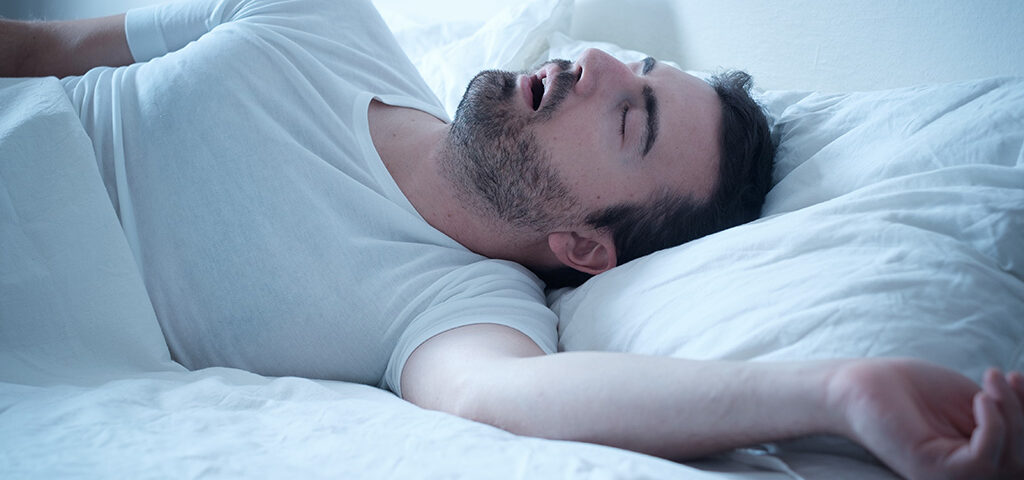Although both sleep apnea and alcohol use carry major health concerns on their own, combining them can lead to a very unsettling and potentially fatal situation. Millions of people around the world suffer from a sleep disorder known as sleep apnea, which is characterized by irregular breathing patterns while sleeping. Alcohol is one of the most consumed drugs and is frequently used as a way to unwind and relax. But mixing alcohol and sleep apnea might have harmful effects. Banyan Treatment Centers Massachusetts looks at instances of sleep apnea alcohol death, highlighting the detrimental impacts on physical health, cardiovascular health, cognitive function, and the increased chance of fatal accidents and injury.
Questions about our Facilities or Programs?
Our admissions coordinators are available 24/7 to answer any questions you may have as you consider whether treatment at Banyan is right for you or your loved one.
Can Alcohol Cause Sleep Apnea?
Alcohol intake has been associated with negative health impacts, including the possibility of interfering with regular sleep patterns and aiding in the onset or aggravation of sleep apnea. Alcohol is frequently thought of as a sedative that helps people fall asleep, but its effect on the caliber of sleep is far from favorable. Alcohol relaxes the muscles, particularly the muscles in the throat, by acting as a depressant on the central nervous system. This muscular relaxation can cause the airway to constrict or completely close off during sleep, aggravating the symptoms of sleep apnea or even causing apnea episodes in people who may not have previously had them.
Additionally, drinking alcohol can impair the brain's ability to control breathing during sleep. It can obstruct the brain's signaling processes, making it difficult for breathing effort and respiratory system responses to work together as they usually do. This interruption may aggravate pre-existing sleep apnea disorders or lead to the development of apnea episodes.
Sleep apnea symptoms can include:
- Loud snoring
- Episodes of breathing cessation during sleep
- Choking or gasping for air during sleep
- Excessive daytime sleepiness
- Morning headaches
- Difficulty concentrating
- Memory problems
- Irritability or mood changes
- Restless sleep
- Frequent awakenings during the night
- Dry mouth or sore throat upon waking
- Decreased libido or sexual dysfunction
- High blood pressure (hypertension)
- Nighttime sweating
Alcohol's effects on sleep apnea are also influenced by how much is consumed and when. Heavy drinking right before night amplifies the effects of muscular relaxation, increasing the risk of airway blockage and apnea occurrences while you sleep. It is crucial for people with sleep apnea to carefully assess their alcohol intake because even modest alcohol use can have a negative impact on sleep quality and respiratory function.
The Dangers of Alcohol Sleep Apnea Death
By itself, sleep apnea poses serious health hazards, such as an increase in cardiovascular issues, diminished cognitive function, and an increased chance of accidents. However, the risks increase when alcohol is included in the scenario.
One of the primary dangers of sleep apnea alcohol death lies in the compromised respiratory function that arises from the combination of these two factors. Alcohol's muscle-relaxing effects, particularly on the muscles in the throat, can cause airway obstructed breathing harder for people with sleep apnea on and make it harder for people with sleep apnea to breathe. This may lead to an increase in the frequency of apnea events, in which breathing is disrupted or ceases entirely while a person is sleeping. The risk of oxygen deprivation, which can have disastrous effects, is increased by the combination of alcohol's ability to relax muscles and sleep apnea's intrinsic breathing difficulties.
Furthermore, excessive daytime sleepiness and a decline in alertness may result from the poor cognitive function brought on by sleep apnea and the intoxicating effects of alcohol. This risky mix makes accidents more likely, especially while engaging in activities like driving or operating machinery that call for focus and rapid reflexes. According to studies, those who suffer from sleep apnea are already more likely to be in accidents, and alcohol increases this risk. The severity of the effects of such events, which can range from injuries to fatalities, emphasizes how crucial it is to identify and act against the risks linked to sleep apnea and alcohol death.
People with sleep apnea must obtain the right diagnosis, care, and management from medical specialists in order to reduce these risks. It is also recommended to avoid alcohol altogether or, at the very least, to use caution and moderation when consuming it. If a person is unable to control their drinking despite these dangers, it could be a sign that addiction is at play.
Getting into treatment is easy with our free insurance verification
"*" indicates required fields
Recover From Alcohol Addiction at Our Banyan Rehab in Massachusetts
If you or a loved one is struggling to break away from the damaging habits of excessive drinking, our Massachusetts addiction treatment center offers an alcohol rehab program that can help. With a variety of care levels at our disposal, we can ensure that each patient of ours receives a recovery experience that is personalized to their unique needs. Do not assume that you need to face these challenges alone. We have the resources and support necessary to help you make significant strides in your journey toward sobriety and wellness.
Call Banyan Massachusetts at 888-280-4763 to learn more about the therapy programs we offer and how they can aid you or a loved one in achieving recovery from alcoholism.
Related Reading









